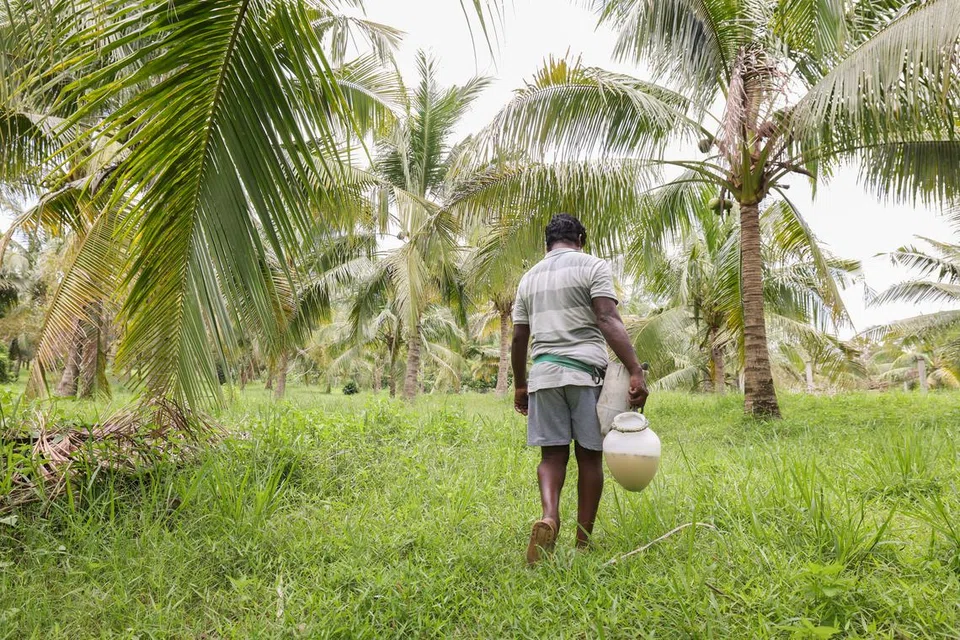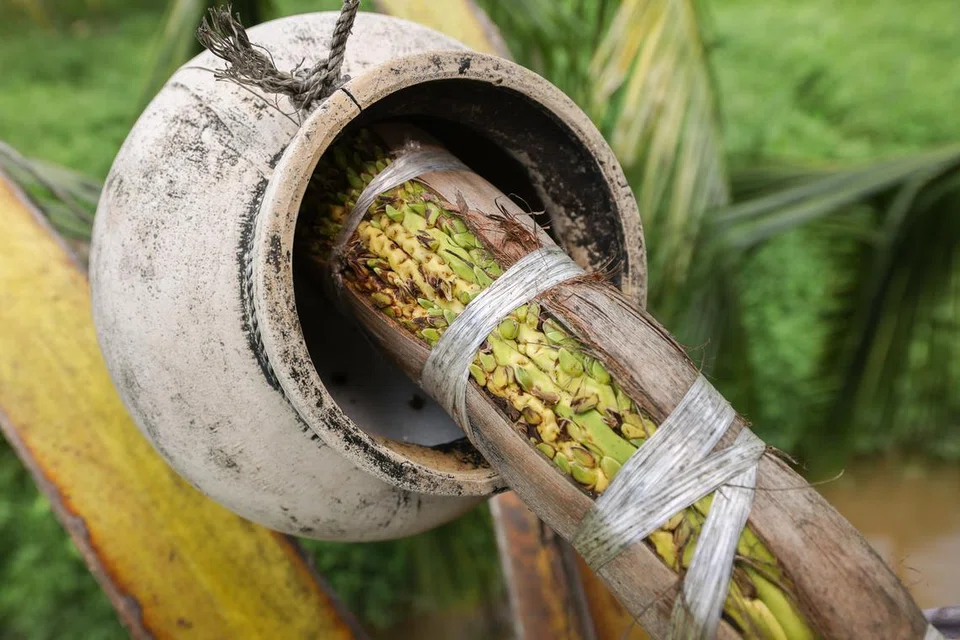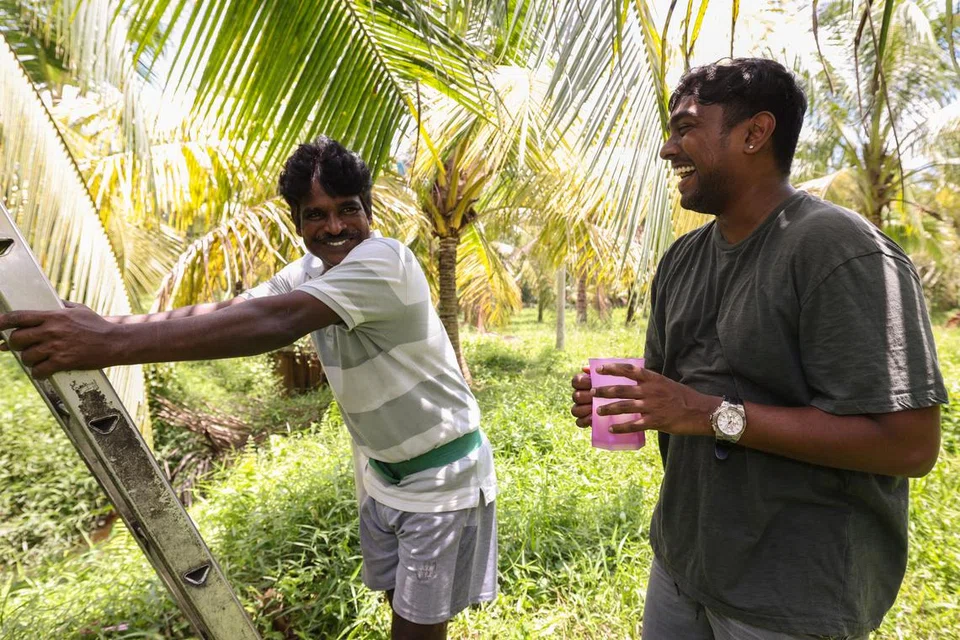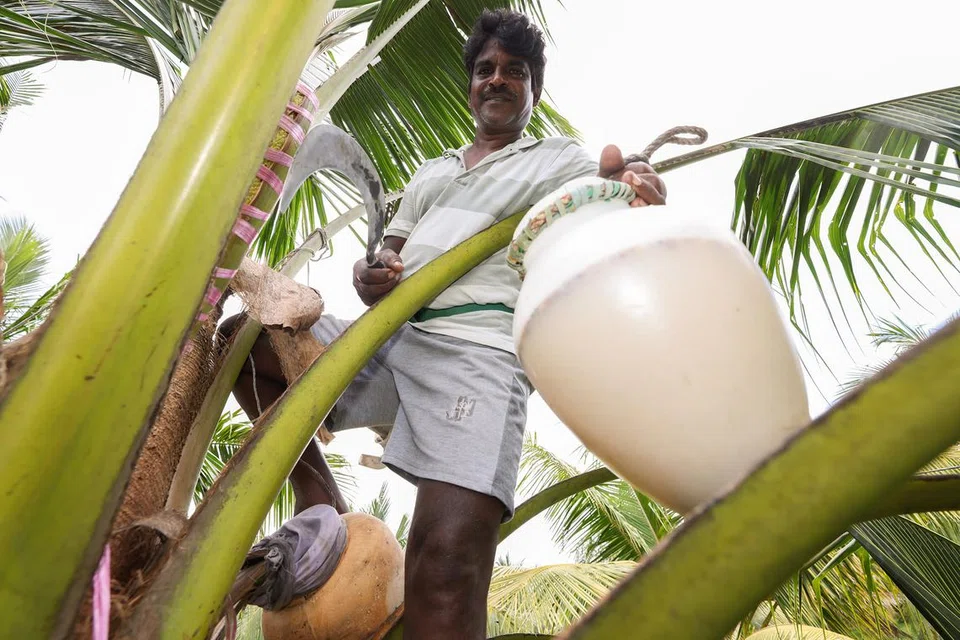Two plantations in Malaysia supply the raw, unfiltered toddy in HighDrate.
Located about 30 kilometres from Melaka, one of them is home to more than 90 coconut trees.
However, the real story lies with the tappers – the unsung custodians who keep this fading tradition alive.
One of them is Mr Thangavel Kumar, 55, a toddy tapper for nearly four decades.
Nimble and sure-footed, he moves among the trees with confidence and ease.
He said: “Back in India, it hardly rains – maybe twice a year, so the trees stay clean and free from algae. I could climb them easily.
“But here in Malaysia, it rains often. The trees get slippery, so I have to use a ladder.”
Mr Kumar’s day begins at 5am.
He tightens his tool belt, sharpens his sickle with a few quick strokes, grabs his ladder and heads into the plantation.
The smell of fermenting toddy fills the humid air as he sets up and begins his climb.
As soon as he reaches the top, he knows exactly which flower stalk to choose.
He starts working on it, massaging and gently twisting the stalk to soften the tissue inside and stimulate the sap flow.
This goes on every day for two weeks.
He then ties a raffia string around the flower stalk to keep its shape and prevent it from blooming into flowers.
After a few days, he slices the tip to check for sap. That is when he knows if he’s ready to make a clean cut.
As the sap begins to drip, he ties a pot below to collect the toddy.
“There aren’t many toddy tappers left these days. The tradition is slowly fading,” said Mr Sharaveen.
“I’m looking at introducing modern technology like a pump system, to make the process more efficient. It would eliminate the need for tappers to climb the tree repeatedly.”




